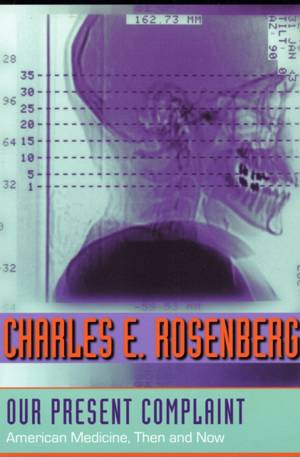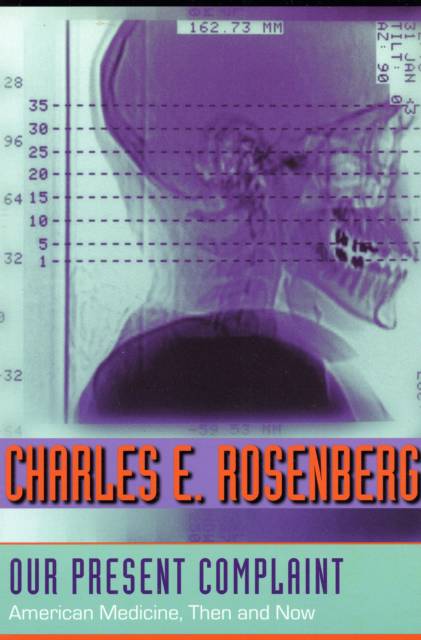
- Retrait gratuit dans votre magasin Club
- 7.000.000 titres dans notre catalogue
- Payer en toute sécurité
- Toujours un magasin près de chez vous
- Retrait gratuit dans votre magasin Club
- 7.000.0000 titres dans notre catalogue
- Payer en toute sécurité
- Toujours un magasin près de chez vous
Description
Charles E. Rosenberg, one of the world's most influential historians of medicine, presents a fascinating analysis of the current tensions in American medicine.
Situating these tensions within their historical and social contexts, Rosenberg investigates the fundamental characteristics of medicine: how we think about disease, how the medical profession thinks about itself and its moral and intellectual responsibilities, and what prospective patients--all of us--expect from medicine and the medical profession. He explores the nature and definition of disease and how ideas of disease causation reflect social values and cultural negotiations. His analyses of alternative medicine and bioethics consider the historically specific ways in which we define and seek to control what is appropriately medical.
At a time when clinical care and biomedical research generate as much angst as they offer cures, this volume provides valuable insight into how the practice of medicine has evolved, where it is going, and how lessons from history can improve its prognosis.
Spécifications
Parties prenantes
- Auteur(s) :
- Editeur:
Contenu
- Nombre de pages :
- 224
- Langue:
- Anglais
Caractéristiques
- EAN:
- 9780801887161
- Date de parution :
- 01-11-07
- Format:
- Livre broché
- Format numérique:
- Trade paperback (VS)
- Dimensions :
- 167 mm x 229 mm
- Poids :
- 308 g

Les avis
Nous publions uniquement les avis qui respectent les conditions requises. Consultez nos conditions pour les avis.






